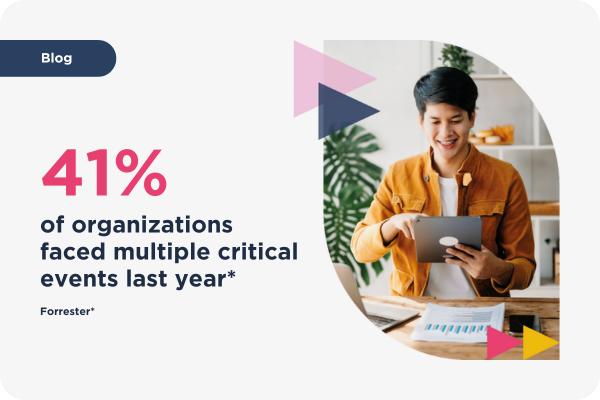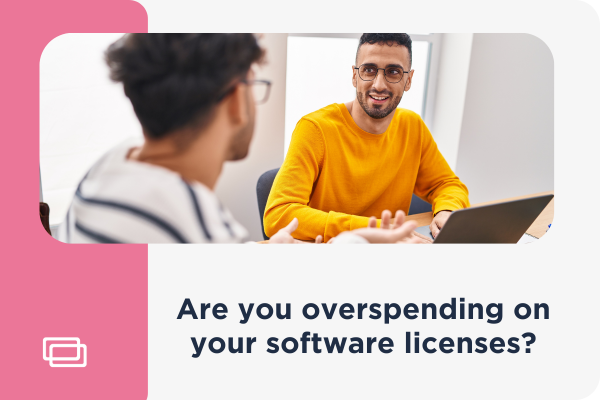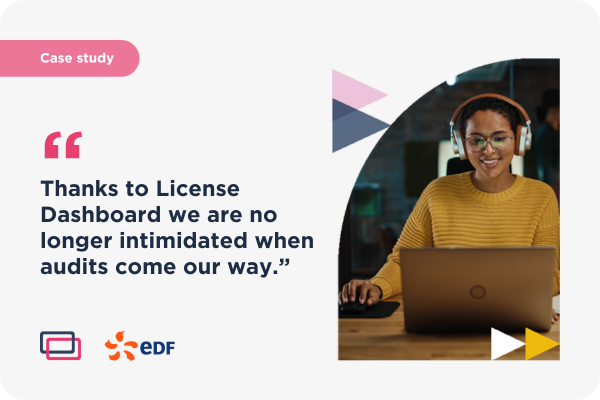At License Dashboard we are, and always have been passionate about creating and maintaining a diverse place of work. One of our employees has been working with the Women in Technology Community by building a space where women can support each other, share advice and work to narrow the gender gap.
We asked some esteemed women within the IT industry to tell us a bit about their experiences within the workplace, here’s what Sarah Lewis from Ivanti had to say:
When did you first start in the IT industry and what drew you to it?
I actually just fell into IT to be honest. I started my career as a veterinary nurse but soon realised that I found the work way too emotional! I started temping in customer support roles for organisations like Going Place and realised that as much as I love animals, I am pretty good with people too. An agency contacted me about an IT support/purchasing role and, whilst the idea didn’t excite me, I thought I’d go along for the experience and ended up loving the people who interviewed me, so I took the job. After a while I moved into more of a Software Asset Management role and then, eventually, out of IT and into marketing. 18+ years later and I am still with the Ivanti and loving it.
As a woman, have you faced any challenges within working environments?
My first role in IT was in a very male dominated department. The team were all really friendly to me, but we didn’t have a lot in common and I did experience a lot of “lad banter”. However, over time I learned to speak up when I was uncomfortable with certain conversation topics and the team learned to be more inclusive and sensitive to our team diversity. I have witnessed behaviours that made me very uncomfortable over the years, and I have had some horror stories from other women but on the whole, I have been pretty lucky.
My first role in IT was in a very male dominated department.
It’s now well known that a lot of industries have been highlighted due to pay gaps between men and women, do you think this is the same within the IT industry?
I do believe that the IT industry does have a gender pay gap problem, and this is something which a lot of women in tech also believe to be true. Last year, Ivanti did a women in tech survey and 39% of the respondents cited Gender Pay Gap as one of the biggest challenges of being a women in technology. Despite the UK government gender pay gap survey, companies are still failing to meet the required standards and a lot of people I have spoken to feel, that the way the data is pulled together means that it is not completely accurate. I do think that the government survey has brought the pay gap to the forefront and companies are more thoughtful about this now. It is going to take time for it to really change though.
In recent years there has been an influx of women in all workplaces, but it’s not equal to men, I read somewhere that men are 30% more likely to be promoted to a managerial position than women. Why do you think this is and what can organizations do to prevent discrimination and maintain equality when looking at hiring, salaries and promotions?
First of all, I’ll talk about the lack of women being promoted; I think there are many reasons why women are less likely to climb the career ladder at the pace of their male counter-parts. Some leadership teams or organisations are inherently sexist, and women are blatantly over-looked but, in other more diverse and inclusive organisations, we still see this gap. I think women can be very susceptible to imposter-syndrome and others just have a lack of confidence to put themselves forward for promotion or special projects. Some of the way businesses can help is by offering management training for individual contributors before they are promoted, offer career path planning and offer mentorship and coaching schemes.
In terms of equality in hiring, there are lots of things organisations can do including blind CVs (i.e. no mention of gender) as well as removing unconscious bias from their adverts and job descriptions as well as their marketing materials, messages and websites.
Having someone to call out the great work you do, and highlight your achievements as vice versa, is very empowering.
Do you have any advice to women starting out in the IT industry?
Try and find a mentor. It doesn’t have to be a female but someone who understands the business and the industry and can help coach you. I would also say that, even if you can’t find a mentor, try and find yourself a sponsor. Having someone in the business who believes in you can be a massive help. Not only can they be your “cheer-leader” but also put you forward for projects that perhaps you wouldn’t have the confidence to apply for. Failing a sponsor, try and find yourself a peer who can become your brag-buddy, I’ve worked with various “brag-buddies” over the years and it is very powerful. Having someone to call out the great work you do, and highlight your achievements as vice versa, is very empowering.
What resources and support are available for women in IT?
Wow, there are so many. There are lots of podcasts, books, blogs and online communities as well as face to face networking and career events. I think the key is finding an employer that cares about diversity and provides some specific resources for women within their organisation.
What’s the biggest lesson you have learnt as a women in technology?
The piece of advice I wish I had been given was “be yourself”. I spent far too many years trying to be less feminine in order to fit in. I did this by dressing in dark, boring clothes and pretending to love video games, football and motorbikes (not saying these topics are masculine, they just happened to be my colleagues interests at the time, and not mine). Once I started to be myself, speak up when I was uncomfortable, and wear some colourful clothes, my confidence grew massively. You don’t need to emulate men in order to be successful – just be you, you are enough.
License Dashboard’s spotlight on Women in Technology
Keep an eye out for the next post in our Women in Technology series and if you would like to take part, please don’t hesitate to get in contact.

























